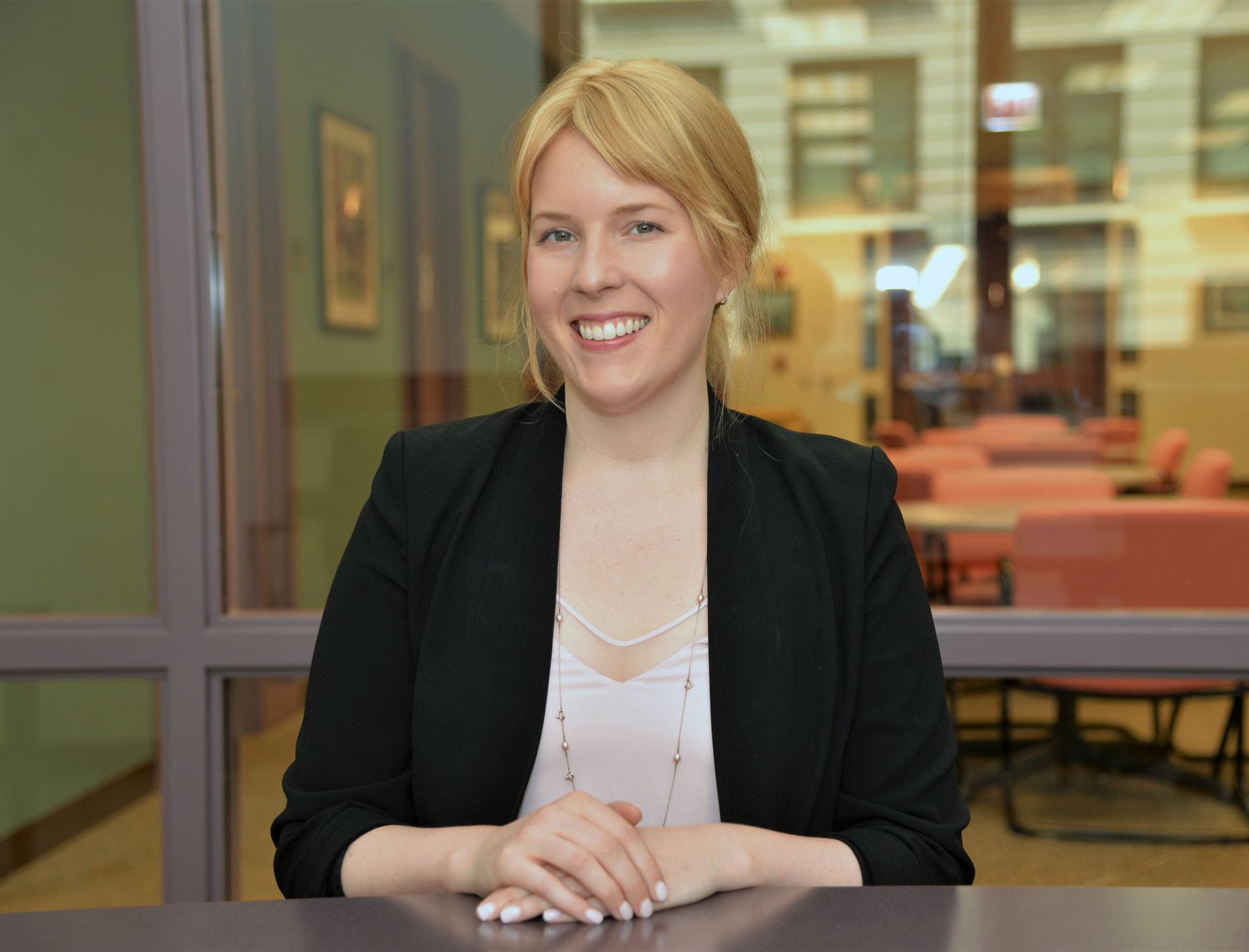I try to make students see how my research is relevant to their own lives. I advise students, if you have a particular vision of what work-life balance should be, that absolutely needs to be part of the conversation when you are interviewing for a job to make sure there’s a good fit.”
It was “a disagreement with American work culture” that led Grace Lemmon (BUS ’06) to choose the intersection of work-life balance and employee engagement as her academic specialty.
“The culture we’ve established in the U.S. is go, go, go, and there’s no time for recovery or adequate stress management,” says Lemmon, an associate professor who teaches courses in management and leadership. “It’s become the default to be overwhelming busy at work, and it’s frustrating that that’s the default.”
Lemmon’s most recent research focuses on low-skill workers, a population often ignored in discussions of work-life balance and engagement. “The big issue is that employers tend to treat low-skill, low-wage workers as if they have a problem if they are disengaged at work. Yet, there’s often nothing about their work that would engender engagement,” she says. “My suggestion is that organizations with low-skill workers not only pay them enough, but also have clear paths for building additional skills on the clock. If organizations truly believe in the up-by-the-bootstraps (American) dream, then they need to provide the kind of support that white-collar workers take for granted.”
Lemmon is clearly passionate about shaping leadership practices through her award-winning scholarship and teaching. But back when the Glenwood, Ill., native was deciding where to go to college, an academic career wasn’t even on her radar.
“I had no idea that those avenues would be open for me,” she recalls. “My family culture was not one where there was a lot of education. It seemed like that was what other people do—wealthy people, in particular—but not me.”
Lemmon applied to only one college—DePaul—after visiting the Lincoln Park Campus to attend a concert. She majored in marketing, but soon realized it wasn’t her calling. She did notice, however, that her professors “were immersed in their classrooms and energized by their jobs,” she says. “It made me curious about academia as a whole.”
A faculty mentor convinced Lemmon that her curiosity could lead to a rewarding career. “I was lucky enough to work as a research assistant for management faculty member Patrick Murphy, and he brought me on to an academic paper,” she explains. “He gave me some data, academic papers to read and a small section to write. He made me co-author of the paper, which opened the door to graduate school—literally. He took me over to UIC (University of Illinois at Chicago), knocked on doors of professors he knew and got them to talk with me. Patrick took me under his wing and championed me in a way that I hadn’t experienced before. It was incredibly touching and meaningful, and completely changed the course of my life.”
Lemmon earned a PhD in business administration from UIC, and in 2012, she jumped at the chance to return to DePaul as a faculty member. She feels a strong connection to the student body because of DePaul’s commitment to educate students who come from less-privileged backgrounds.
Lemmon is now the one taking students under her wing, including future academics enrolled in DePaul’s Doctorate in Business Administration program, for which she serves as an associate director. She also shares her work-life balance research with her undergraduate and graduate students to help them make good career decisions.
“I try to make students see how my research is relevant to their own lives,” she says. “I advise students, if you have a particular vision of what work-life balance should be, that absolutely needs to be part of the conversation when you are interviewing for a job to make sure there’s a good fit.”
By Robin Florzak
